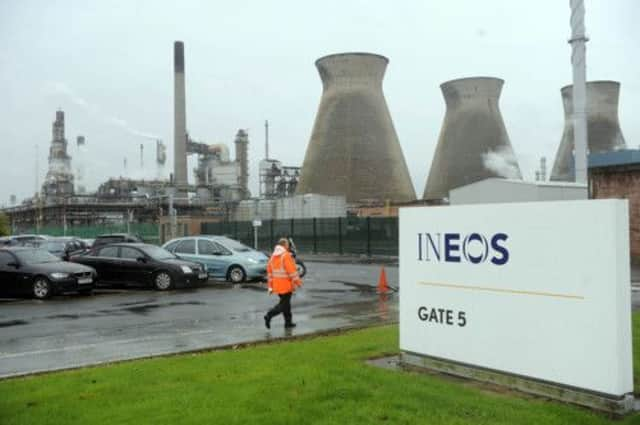Alf Young: Ineos are not alone in hedging bets


As THE fate of the Grangemouth petrochemical complex teetered on a precipice this week, elsewhere the hedge fund industry was flexing other muscles. One London-based fund, TCI, emerged with a 5.8 per cent stake in Royal Mail, the biggest new shareholder in the now part-privatised letters and parcels delivery business.
On Monday, pressure from US-based hedge funds – led by Aurelius Capital and Silver Point Capital – helped wrest from the Co-operative Group control of its troubled banking arm. By swapping bond debt they’d picked up earlier this year for a song for equity, those two will end up with stakes of around 10 per cent each in the bank. The Co-op will see its own stake slashed to just 30 per cent.
Advertisement
Hide AdAdvertisement
Hide AdWe will see how long the bank’s promise of a more ethical approach survives the arrival of these funds among its owners. Some call them vulture funds. Quite how their bargain-hunting instincts square with the mutual ethos of the Co-op is anyone’s guess. The man who runs Aurelius is a former bankruptcy lawyer Mark Brodsky. His approach to investments has earned him the nickname “Terminator”.
Hedge funds are designed to make money, whatever the prevailing market weather. Hence their generic name. Their intention is to buy cheap and sell dear. Every time. Many have a reputation for an aggressively activist approach to managing their investments. They don’t take prisoners. And they tend to operate beyond the kind of scrutiny and regulation faced by more mainstream investment vehicles trying to attract the public.
Strictly speaking, Grangemouth’s owner Ineos isn’t a hedge fund. But the way the multinational chemicals conglomerate is structured and operates broadly mimics the hedge fund approach. Mancunian Jim Ratcliffe, its creator, majority shareholder and the man directly controlling Ineos Capital, is a trained chemical engineer. But before launching Ineos in 1998 he immersed himself in financial engineering.
Viewed from the perspective of his hedge fund peers, Mr Ratcliffe played a blinder this week. By shutting down the complex and then threatening the liquidation of the entire petrochemical plant, the Ineos chairman had the leader of Unite, Len McCluskey, and the workers his union represents where he wanted them, virtually begging him to keep the place open, on almost any terms. Unite even sacrificed its plant conveners, promised no strikes for three years and swallowed an unquantified number of job losses in the medium term, to get Ineos to think again.
And the man who has said more than once he no longer regards Britain a particularly profitable place to make things – energy “expensive”; logistics “costly”; skills “middle to poor”; pension costs “outrageous” – also achieved a political first. With less than a year to go before Scotland votes on independence, he had nationalist and unionist political leaders, who rarely have a good word to say about each other, standing shoulder to shoulder urging him to keep Grangemouth open. Surely an inadvertent poster opportunity for the Better Together campaign.